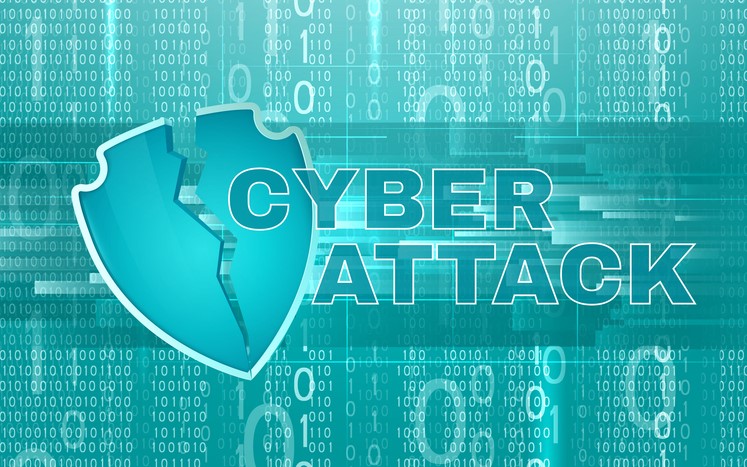
The Rise of Undetectable Cyberattacks: Why Businesses Need Proactive Defense Now More Than Ever
Cyberattacks are evolving at an alarming rate, and one of the most concerning trends is the rise of undetectable threats. According to recent reports, businesses are increasingly being bombarded by sophisticated attacks that evade traditional detection methods, leaving organizations vulnerable to significant damage. The threat landscape is not just growing in size, but in complexity, and the consequences for companies can be devastating. As these stealthy cyberattacks become more prevalent, businesses must adopt a proactive and prevention-first approach to cybersecurity to protect their critical assets.
The Rise of Undetectable Attacks
Undetectable cyberattacks, also known as “stealth” or “low-and-slow” attacks, are designed to evade detection by traditional security tools. These attacks use advanced techniques to infiltrate networks without triggering alarms, often hiding within legitimate network traffic or employing encryption to mask their presence. Once inside, attackers can move laterally, gathering sensitive information or planting malicious code, all while remaining invisible to traditional security defenses.
In today’s environment, where malware signatures and known attack patterns are the focus of many security systems, undetectable attacks represent a serious threat. Cybercriminals are no longer relying on brute force or obvious exploits; instead, they are leveraging sophisticated methods that target weaknesses in detection-based systems. This shift in tactics makes it clear that relying on traditional cybersecurity measures alone is no longer enough.
Why Traditional Security Measures Are Failing
Most businesses still depend heavily on detection-based security solutions, such as antivirus software, firewalls, and intrusion detection systems (IDS). These tools work by identifying known threats and patterns, often using signature-based methods to block attacks. However, this approach has a significant blind spot: it can only detect what is already known.
Undetectable attacks exploit this limitation by using previously unknown vulnerabilities or employing techniques like fileless malware, where no traditional files are downloaded to trigger detection. These attacks can bypass security defenses, allowing attackers to gain a foothold within an organization’s network and quietly gather information or compromise critical systems over time. As these attacks grow in sophistication, businesses must shift their focus from reactive defenses to proactive protection.
The Need for Proactive Cybersecurity
In the face of undetectable attacks, businesses must adopt a proactive cybersecurity strategy that prioritizes prevention over detection. One of the most effective ways to combat these stealthy threats is by implementing a Zero Trust security model. Zero Trust operates on the principle that no user or device, whether inside or outside the network, should be trusted by default. Every access request must be authenticated, authorized, and continuously monitored to ensure it is legitimate.
Another key component of a proactive security strategy is containment. Containment technologies work by isolating potentially harmful files or code before they have a chance to execute, rendering undetectable attacks powerless. By stopping threats at the point of entry, businesses can prevent attackers from moving laterally within the network and eliminate the possibility of widespread damage.
Regular security assessments, vulnerability scanning, and advanced threat intelligence are also critical components of a proactive defense. These measures help businesses stay ahead of emerging threats and identify weaknesses before cybercriminals can exploit them. By continuously improving security posture and adopting cutting-edge technologies, businesses can significantly reduce the risk of falling victim to undetectable attacks.
What Makes Xcitium Stand Out
Xcitium is a leader in proactive cybersecurity solutions, offering advanced technologies specifically designed to combat undetectable attacks. Xcitium’s ZeroDwell Containment technology provides real-time protection by isolating and neutralizing potential threats before they can cause harm. This proactive approach ensures that even the most sophisticated and undetectable attacks are stopped at the point of entry, preventing attackers from executing malicious code or gaining a foothold within the network.
Built on the principles of Zero Trust, Xcitium’s platform continuously verifies the legitimacy of every access request, ensuring that only authorized users and devices can interact with sensitive systems and data. By integrating advanced threat intelligence and machine learning, Xcitium offers businesses a comprehensive security solution that evolves with the threat landscape, keeping organizations protected against even the most elusive cyberattacks.
Xcitium’s commitment to prevention-first cybersecurity, combined with its robust containment and Zero Trust technologies, makes it a trusted partner for businesses looking to stay ahead of the growing threat of undetectable attacks. With Xcitium, businesses can focus on innovation and growth, confident that their critical assets are protected from today’s most sophisticated threats.
Conclusion: A Call to Action for Proactive Cyber Defense
The rise of undetectable cyberattacks signals a critical turning point in the world of cybersecurity. As attackers become more adept at evading traditional defenses, businesses must shift their focus from detection-based security to proactive, prevention-focused strategies. The consequences of failing to adapt to this new reality are too great, as a single undetected attack can lead to catastrophic financial and reputational damage.
By adopting a Zero Trust model and implementing containment technologies like Xcitium’s ZeroDwell Containment, businesses can protect themselves against even the most sophisticated and stealthy threats. The future of cybersecurity lies in proactive defense, and companies that take action now will be well-positioned to thrive in an increasingly dangerous digital landscape.
Please give us a star rating based on your experience.
